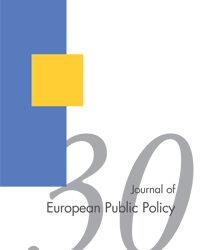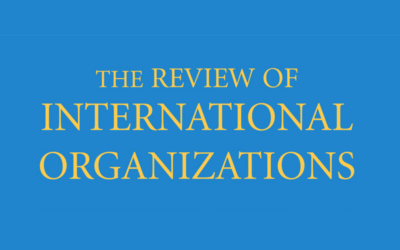News
Sabbatical at the EUI
During the academic year 2023/24, I am spending a sabbatical at the Robert Schuman Centre for Advanced Studies at the European University Institute in Florence.
New JEPP article on IO diffusion
In this piece in the Journal of European Public Policy, Mariel Reiss and I show how IO policy-makers innovate institutionally by selecting between, combining and modifying institutions from different external sources. Our empirical case is the East African Community.
New RIO article on the self-legitimation of IOs
In this piece in The Review of International Organizations, my co-authors and I develop a theory of endogenous institutional change in international organizations (IOs) and test it on a sample of 41 regional IOs between 1950 and 2019.
New ISP article introducing the LegRO dataset
In this piece in The Review of International Organizations, my co-authors and I develop a theory of endogenous institutional change in international organizations (IOs) and test it on a sample of 41 regional IOs between 1950 and 2019.
Special section “Legitimizing international organizations” in International Affairs
Fredrik Söderbaum and I have edited a special section at International Affairs in which our contributors examine discursive, institutional and behavioral legitimation strategies of a range of international organizations.
New RIO article on endogenous change in IOs
In this piece in The Review of International Organizations, my co-authors and I develop a theory of endogenous institutional change in international organizations (IOs) and test it on a sample of 41 regional IOs between 1950 and 2019.
OUP book on interorganizational diffusion and regional institutions out now as an OA publication
My monograph entitled “Interorganizational Diffusion in International Relations: Regional Institutions and the Role of the European Union” is now published. It is freely available for download as an OA publication.
OUP book on international parliamentary institutions out now
In this book, I have joined forces with other experts to deliver the first comprehensive analysis of the creation and design of international parliamentary institutions (IPIs). We interpret IPIs as instruments of strategic legitimation. Discount flyer available.






